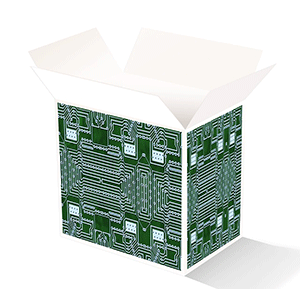 Modern enterprise software technology offers companies incredible tools to improve efficiency, productivity and ultimately increase their profitability.
Modern enterprise software technology offers companies incredible tools to improve efficiency, productivity and ultimately increase their profitability.
But how can you determine which software is best for your business?
You’ve likely heard these two acronyms thrown around in board meetings or sales pitches: ERP (enterprise resource planning) and CRM (customer relationship management). While they are both designed to increase efficiencies in business processes, they have distinct goals toward that end.
Let’s dive into the similarities and differences between the two applications, as well as guidance on choosing which one (or both) is right for your business.
What’s the Deal with CRM?
Do you need a system for recording and storing all customer interaction information? Look toward the CRM, which emphasizes relationship management. Think of it as a front-office manager, who handles everything from sales pipelines to lead generation.
Customer relationships are the lifeblood of business. As a software tool, a CRM is essential to maintaining those relationships. But it must also be paired with a like-minded shift in staff strategy, aimed at learning more about customer behaviors and developing stronger relationships.
We are all human, and we likely aren’t able to keep track of all our prospective clients from our own heads. Let the CRM do that for you, and you’d also benefit from:
- Decentralized emails
- Sales process metrics
- Automated status checks
- Detailed customer histories
- Predictive capabilities
Plus, you’d never need to worry about losing the data that’s stuck on a local server. Not to mention the ever-increasing need for mobile CRM access and on-the-go prospecting.
What’s the Deal with ERP?
If the CRM is your front-office lead and relationship manager, then the ERP is your back-office manager in charge of configure-price-quote and supply chain management. Use it to organize all logistics in your operation, from product planning to financials.
You need to be able to manage all the new business that comes from nurtured customer relationships in the CRM. An ERP streamlines that process within a single unified system. This is especially helpful if you’re soldering on with different systems between departments, causing untold havoc whenever something needs to be translated from receivables and payables.
If you’re spending more time balancing the company spreadsheets than prospecting new customers, then an ERP system might help your business. You’d benefit from:
- Streamlined accounting processes
- Centralized database with no data duplication
- Suite-wide reporting
- More efficient customer service
- Enhanced security and data accuracy
We’re all about making our customers’ lives easier – and as their clients’ expectations grow higher every day, we want them to adapt effectively and grow alongside the industry.
Looking to integrate a CPQ software solution with and ERP or CRM system? We can help. Contact us to learn more about our ERP partnership with NetSuite and Exact Macola.